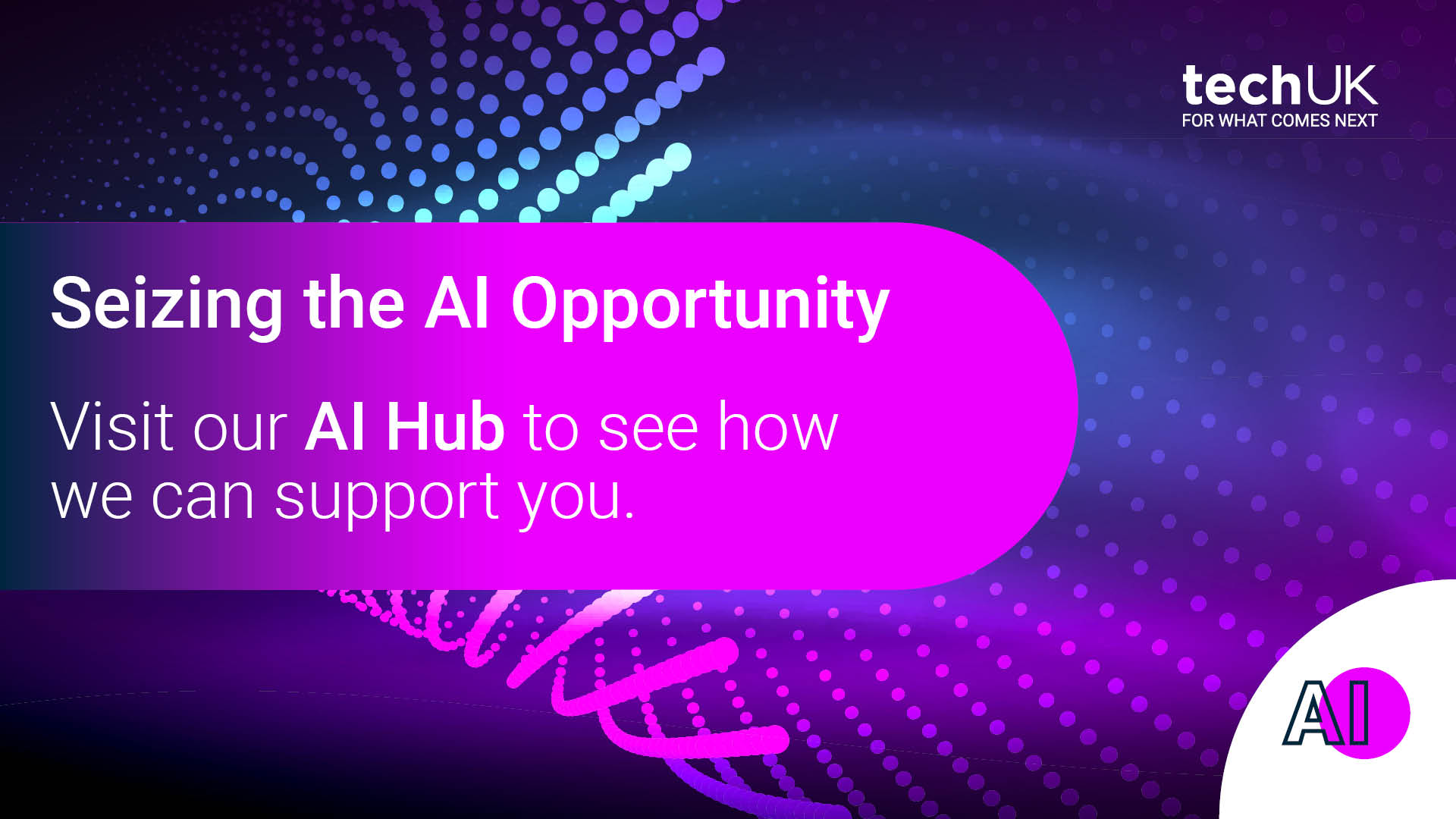Building the Future-Ready Workforce: AI Fluency Is the New Literacy
As AI reshapes our world faster than we imagined, the question we face isn’t whether we need an AI-ready workforce — it’s how quickly we can build one that’s inclusive, imaginative, and equipped for what’s next.
We believe this shift is about reimagining the entire talent lifecycle, from nursery to boardroom. That’s why, when asked to contribute to techUK’s spotlight on the UK’s AI ecosystem, I brought together colleagues from across disciplines to co-create our collective view. What emerged was clear: technical skills for the future are vital, but they’re not enough for an AI world.
AI isn’t the future. It’s here — and accelerating.
“The rapid adoption and rate of change is phenomenal,” said David Wilson, a technical consultant. “When I first started exploring AI, I thought AGI was 20 years away. Now I think it could be five.”
This acceleration is already transforming job markets. The World Economic Forum’s Future of Jobs Report 2025 shows the most in-demand skills are not technical or literacy. Analytical thinking, creative thinking, resilience, and curiosity top the list. These are not ’nice-to-haves' — they are critical for navigating an AI-infused economy.
As AI continues to evolve and take on more tasks, the role of human input is shifting. In this new landscape, meaning and purpose are becoming the key motivators- especially for younger generations, who may be asking “What’s the point?”. AI can feel like just another obstacle, but those who are grounded in a strong sense of why will be the ones who adapt, thrive and find their place.
Creativity and STEM
One of the most thought-provoking tensions that emerged in our workshop was between investing in creativity versus technical STEM proficiency. Some argued, reasonably, that AI development demands strong foundations in maths, data science, and engineering. As one colleague put it, “In a tight fiscal environment, prioritising vocational STEM training offers more immediate return.”
But others challenged that view. “We don’t need more professional artists,” said Joanna Finlay, Consulting Manager, “but we do need kids to do music, dance, art — because it makes their brains more agile and imaginative.”
I agree. These creative capacities are what AI can’t (yet) replicate — but exactly what we need to design the ethical, intuitive, and inclusive tech of the future.
Consulting Manager Mark Henderson captured this perfectly:
“An AI-ready workforce might actually be 80% AI. So the human 20%? That better be exceptional. It had better be creative, ethical, and curious — or we’ll just be dominated by the tools we’ve built.”
Collectively we explored a future that isn't STEM or arts — maybe it’s Createch: the fusion of creativity and technology. As Charles Landry, a leading international authority on the use of imagination and creativity in urban change, says, “Distinctions between ‘cultural’, ‘creative’ and ‘digital’ enterprises are fast eroding.” This interplay must start early — and it must be deliberate.
Start young. Upskill wide. Embed learning for life.
Our collective view is simple: we need to start early, learn differently, and adapt constantly.
“AI should be taught at primary school,” said Jonathan Cave, Consulting Manager. “It’s as important now as maths and english.” Fellow Consulting Manager, Selina Satchell agreed: “There’s a chunk of development before primary school — nursery even — where kids are already engaging with AI-powered tools.”
But education alone won’t bridge the gap. We must rethink learning across the workforce. That means:
-
Accessible reskilling now for those at risk of being left behind.
-
Just-in-time training to keep pace with evolving tools.
-
Critical thinking and ethical reasoning as core competencies.
We also need to govern AI learning itself. “Who decides what’s fact in an AI-generated world, and what should be taught?” asked Jonathan. "It raises important questions about how we teach truth, trust, and technology in the age of AI."
Our call to action: Invest in humans as well as the tech
AI is already changing the way we work and live. To stay ahead, the UK must invest in people — not just technology.
Here’s what we need to do:
-
Start early with AI education, creativity and STEM, making sure children learn how to use and understand AI from the start.
-
Help businesses give all workers access to just-in-time on-the-job learning, so no one gets left behind.
-
Make AI learning part of everyday life, not just something you do at the start of your career.
-
Teach people to think critically about AI, so they can use it wisely and ask the right questions.
-
Create a holistic approach to education, including preparing society for the impacts of AI, and not just the skills in isolation.
The AI era demands more than technical know-how. It demands human ingenuity. Let’s build a workforce that’s technically confident, creatively alive, and critically prepared for what’s next.
techUK - Seizing the AI Opportunity
The UK is a global leader in AI innovation, development and adoption.
AI has the potential to boost UK GDP by £550 billion by 2035, making adoption an urgent economic priority. techUK and our members are committed to working with the Government to turn the AI Opportunities Action Plan into reality. Together we can ensure the UK seizes the opportunities presented by AI technology and continues to be a world leader in AI development.
Get involved: techUK runs a busy calendar of activities including events, reports, and insights to demonstrate some of the most significant AI opportunities for the UK. Our AI Hub is where you will find details of all upcoming activity. We also send a monthly AI newsletter which you can subscribe to here.
Upcoming AI Events
Latest news and insights
Subscribe to our AI newsletter
AI and Data Analytics updates
Sign-up to our monthly newsletter to get the latest updates and opportunities from our AI and Data Analytics Programme straight to your inbox.
Contact the team
Visit our AI Hub - the home of all our AI content:

Enquire about membership:











